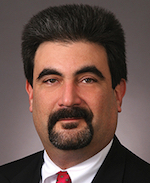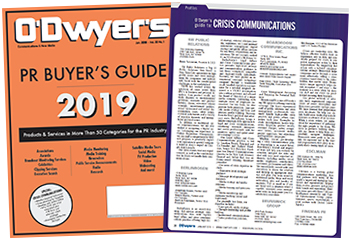 Andrew Goldstein |
When a company or an individual is faced with a crisis, such as a scandal, a government investigation or criminal charges, the first call is likely to be to the lawyers, and the next call, either from the lawyers or the company/individual, could be to a public relations firm. However, will communications between the client or the attorneys and the PR firm be protected as confidential by the attorney-client privilege?
In the recent California case of Stardock Systems Inc. v. Ford et al (11-30-2018), the plaintiff, Stardock, sued the defendants for infringing its intellectual property for its videogame. The defendants claimed that the plaintiff engaged in a PR war against them, consisting of hundreds of posts to online forums and social media platforms which “blatantly misrepresented the facts and seek to sway public opinion in favor of Stardock and its game while casting a shadow over the defendants and their game thereby forcing them to settle this case.” In response, attorneys for the defendants retained a PR firm, Singer Associates Public Relations, to provide communications and PR counseling. The plaintiff alleged that defendants engaged Singer to “orchestrate a social and other media assault on Stardock and in particular its CEO in an effort to influence public opinion and turn it against Stardock by engaging in inflammatory postings and representations that appear to be related to the litigation.” Stardock issued a subpoena to the defendants asking for all documents relating to communications between Singer and defendants.
|
|
The court held that communications between defendant and Singer were protected by the attorney-client privilege because the defendants’ counsel, not the defendants themselves, hired the PR firm to provide PR counseling specifically for the purposes of litigation strategy in the pending case. The court noted that the communications with Singer related to the defendants’ counsel’s litigation strategy in dealing with the current lawsuit, and included legal advice in responding to the lawsuit and launching a public or social media-based campaign to favor the defendants in terms of their perception in the current case.
On the other hand, recent cases from California and New York reached a different result. In a California case, Behunin v. Superior Court (2017), involved a dispute over a real estate investment brought by the plaintiff against Charles Schwab and his son, Michael. A PR firm was engaged by the plaintiff’s lawyers to set up a website containing information linking the Schwabs with former Indonesian dictator Suharto and their connections to corruption and other criminal activities. In a subsequent defamation suit against Behunin, the Schwabs demanded communications between the plaintiff, his counsel and the PR firm. Here, the court refused to apply the attorney-client privilege because the plaintiff failed to establish how a website created by a PR firm as part of an overall social media campaign aimed at inducing settlement was reasonably necessary to the plaintiff’s litigation strategy. The court found that the plaintiff’s counsel wasn’t involved with creating the website and was basically just a liaison in hiring the PR firm.
Similarly, in Gottwald v. Sebert (2017), a New York court refused to apply the attorney-client privilege to communications between singer/songwriter Kesha, her lawyers, and a PR firm hired by the lawyers, where the PR firm’s involvement was “primarily for the purpose of advancing a public relations strategy” as opposed to “developing or furthering a legal strategy.” The court here distinguished between communications focused on the effects of litigation, such as influencing the public for settlement purposes, which constitute ordinary PR strategies and communications that are necessary to obtain legal advice. The court found the focus of the communications was to ensure that developments in the case were being given their desired media spin and were “not coordination to facilitate legal advice.”
All of these cases relied on the opinion in a New York case, In re Grand Jury Subpoenas Dated Mar. 24, 2003. This case involved the target of a high-profile federal grand jury investigation who hired a PR firm based on fears that “unbalanced and often inaccurate press reports about Target created a clear risk that the prosecutors and regulators conducting the various investigations would feel public pressure to bring some kind of charge.” The court protected the communications with the PR firm under the attorney-client privilege and established the test that “(1) confidential communications (2) between lawyers and public relations consultants (3) hired by the lawyers to assist them in dealing with the media in cases such as this (4) that are made for the purpose of giving or receiving advice (5) directed at handling the client's legal problems are protected by the attorney-client privilege.”
As you can see, it’s difficult to predict whether a court will protect communications between a client and/or its lawyers and a PR firm. However, there are steps you can take toward ensuring that such communications are shielded from discovery:
1) The PR firm should be hired by the attorneys, not the client, and the attorneys should manage the relationship with the PR firm, i.e., the attorneys should handle the PR firm’s fees and the attorneys should be copied on any communications between the PR firm and the client.
2) Consider engaging a special PR firm to handle the case, rather than the client’s general PR firm.
3) The PR firm should have a written agreement with the attorneys specifying exactly the services it will provide, emphasizing the facilitating of legal strategy and covering such things as reporting relationships, communications with the law firm and the client, and the sharing of confidential information.
4) The client should talk only with the PR firm when the lawyers are present.
5) The attorneys should be actively involved with the PR firm and its activities, rather than letting the PR firm operate independently.
6) The attorneys should try to ensure that the PR work is focused on the litigation, i.e., trying to influence the relevant decision-makers, such as prosecutors, rather than simply trying to influence public opinion or compelling the other side towards settlement.
Of course, nothing can guarantee that communications between a PR firm and its client or attorneys will be shielded by the attorney-client privilege, but following these steps will help to protect the communications.
***
Andrew Goldstein is a Partner with Freeborn & Peters LLP in the Corporate Practice Group and a member of the Emerging Technologies Industry Team. He can be reached at [email protected].



 Mike McNamara, the former US CEO of Dentons, has joined Baretz+Brunelle, which serves the legal economy, as its first CEO.
Mike McNamara, the former US CEO of Dentons, has joined Baretz+Brunelle, which serves the legal economy, as its first CEO. Publicis Health has agreed to shell out $350M to settle claims that its predatory and deceptive marketing for Purdue Pharma designed to increase sales of OxyContin helped fuel the opioid crisis, according to New York attorney general Letitia James.
Publicis Health has agreed to shell out $350M to settle claims that its predatory and deceptive marketing for Purdue Pharma designed to increase sales of OxyContin helped fuel the opioid crisis, according to New York attorney general Letitia James. Andrew Garson pled guilty in New York federal court on Nov. 1 to charges that he defrauded his former employers MWWPR and Catalyst PR of millions of dollars. He agreed to pay $3.8M in restitution and could be
Andrew Garson pled guilty in New York federal court on Nov. 1 to charges that he defrauded his former employers MWWPR and Catalyst PR of millions of dollars. He agreed to pay $3.8M in restitution and could be  Chambers puts Reevemark, FGS Global, The Levinson Group, Trident DMG and Brunswick Group at the top of the heap for firms providing litigation PR and communications in its newly released rankings for 2023.
Chambers puts Reevemark, FGS Global, The Levinson Group, Trident DMG and Brunswick Group at the top of the heap for firms providing litigation PR and communications in its newly released rankings for 2023. Gloria Labbad, partner and senior counsel at FGS Global, has joined Heather Podesta’s Invariant as it beefs up its litigation communications unit.
Gloria Labbad, partner and senior counsel at FGS Global, has joined Heather Podesta’s Invariant as it beefs up its litigation communications unit.


 Have a comment? Send it to
Have a comment? Send it to 
No comments have been submitted for this story yet.